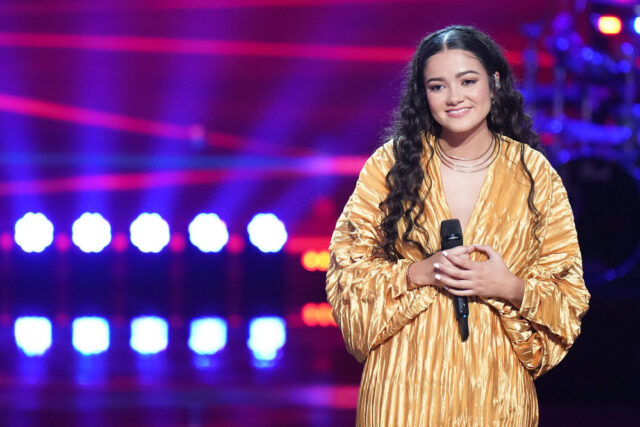INTERVIEW: Garrett Hedlund Discusses His Role as Harry Anslinger in Hulu’s Original Film, ‘The United States vs. Billie Holiday,’ Directed by Lee Daniels
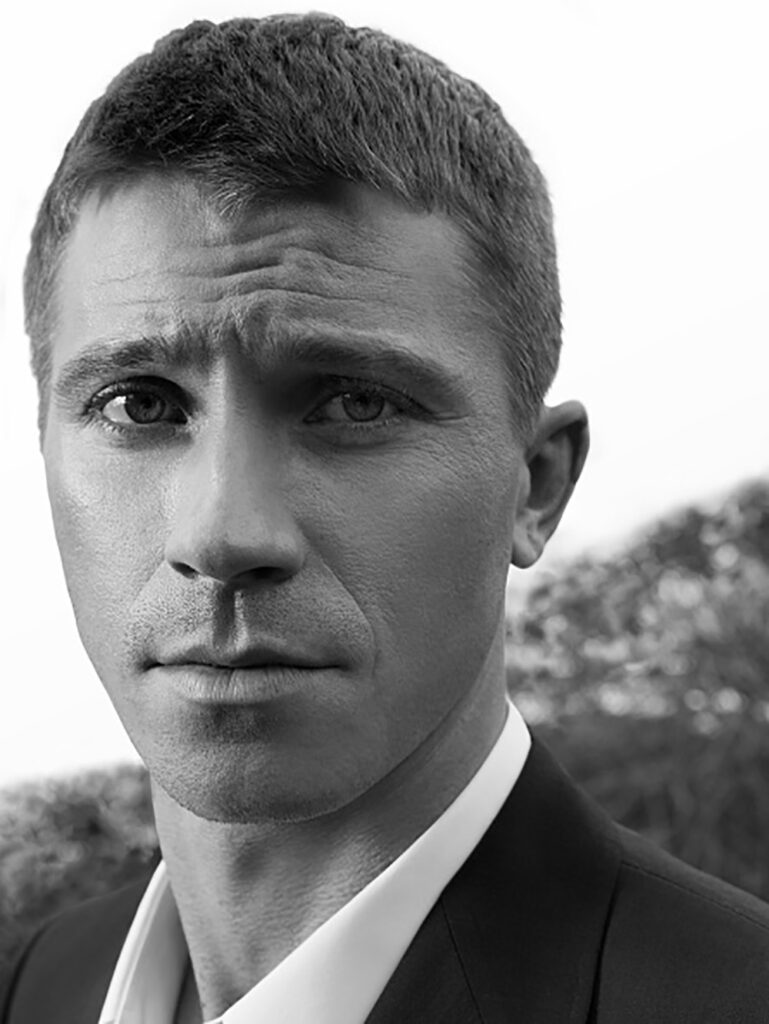
Garrett Hedlund spoke with Glitter Magazine on his role in the upcoming biographical drama film, The United States vs. Billie Holiday, a Hulu Original, written, directed, and produced by Lee Daniels and starring Grammy-nominated singer and actress Andra Day.
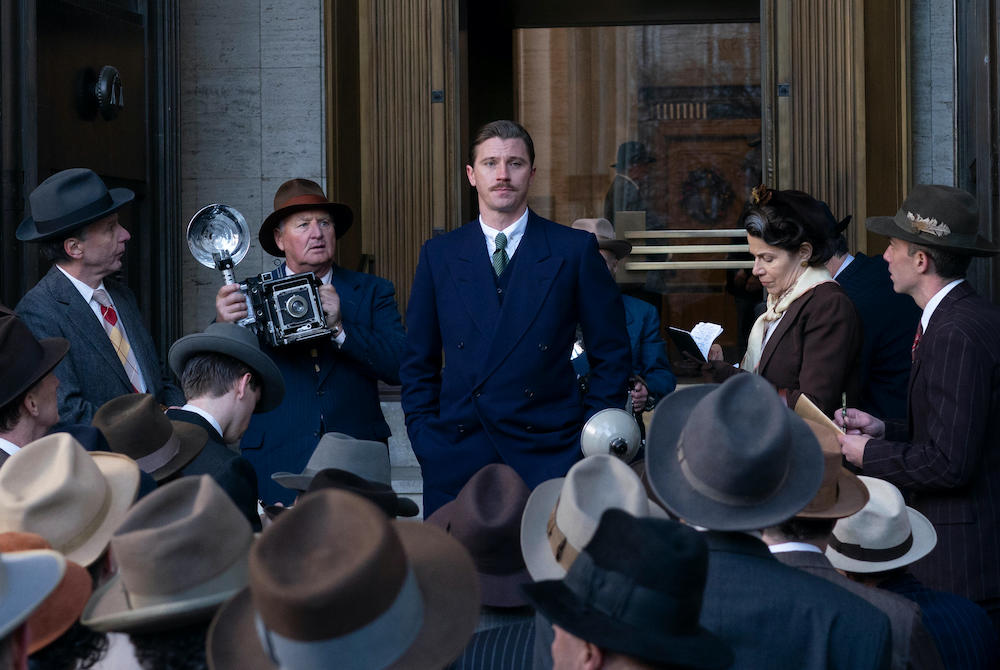
Garret Hedlund, who is known for TRON: Legacy, Mudbound, On the Road, and Four Brothers, stars as Harry Anslinger, the director of the Federal Bureau of Narcotics plotting against Holiday.
The United States vs. Billie Holiday is based on Johann Hari’s 2015 book, Chasing the Scream: The First and Last Days of the War on Drugs, and chronicles the singer’s struggles with addiction, the racism she encountered, as well as the efforts of the Federal Bureau of Narcotics to silence her activist efforts through her music.
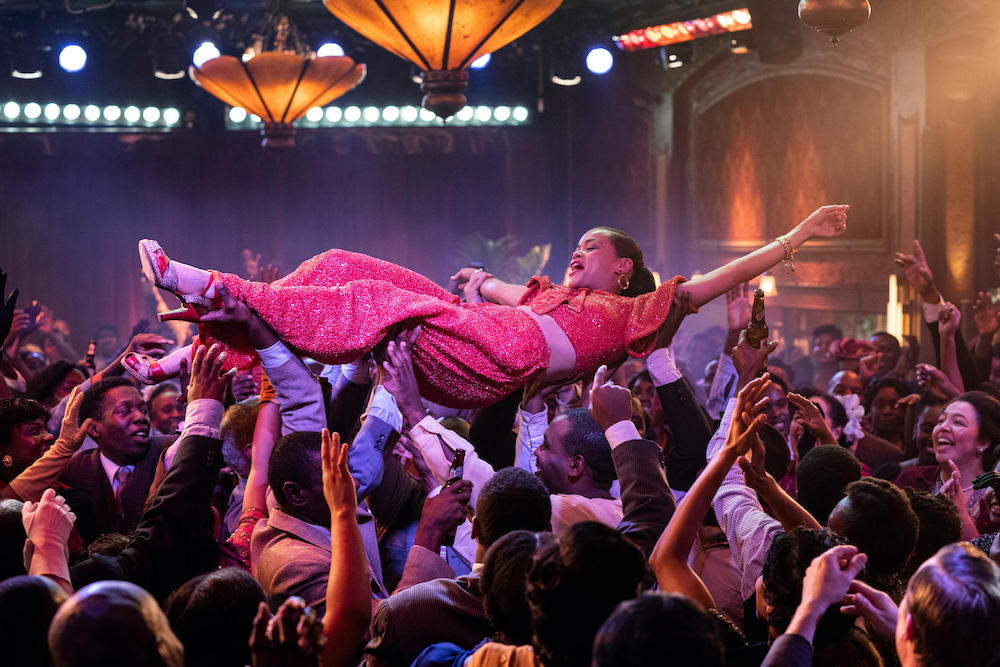
Holiday’s career is haunted by relentless harassment by the Federal Department of Narcotics as they target her with an undercover sting led by federal agent Jimmy Fletcher, played by Trevante Rhodes, with whom she had an affair. The film takes place in 1940’s New York City as the federal government targets Holiday in a growing effort to “escalate and racialize the war on drugs,” with an agenda to stop her from singing her controversial and soulful ballad, “Strange Fruit.”
Other notable cast members include Natasha Lyonne as Tallulah Bankhead, Trevante Rhodes as Jimmy Fletcher, Tyler James Williams as Lester Young, and Rob Morgan as Louis McKay.
Read on to learn more about Garrett’s role, how he prepared for the 1940’s New York setting, working with Andra Day and Lee Daniels, and what he took from the project.
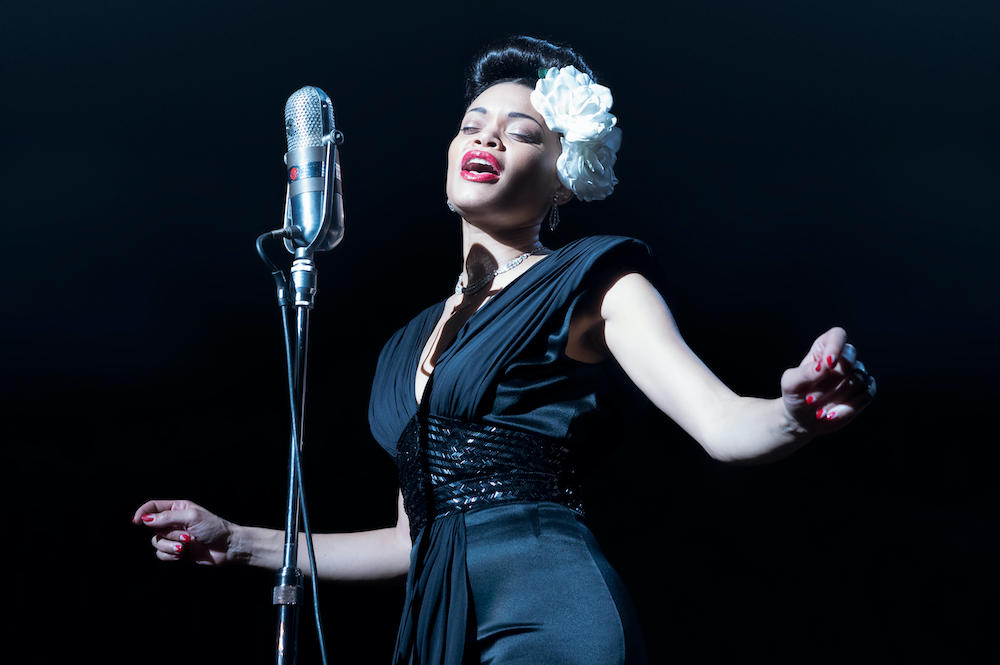
GLITTER: What can you tell us about your role, playing Harry Anslinger?
GARRETT: What can I tell you about my role… that Harry Anslinger was the director of the Federal Bureau of Narcotics. That it was a bureau, he formulated after he had worked on the prohibition, and that had failed. Coincidentally, his wife’s uncle was a man named Andrew Mellon, who was United States Secretary of Treasury, who granted him $100,000 to formulate this bureau, which Harry wanted to really make an impact and put his stamp on the war on drugs after they failed with alcohol, he wanted to become sort of a world-renowned czar on the war on drugs. He maliciously used Billie Holiday as an example and such a harsh manner of what not to do, how not to cross them, simply because she was an addict. Because the lyrics of her song, “Strange Fruit,” was a civil rights movement song with the lyrics represented the act of lynching, the anti-lynching. He thought the lyrics rubbed people the wrong way, and he wanted none of it. And so, he was a very sort of greedy, malicious, dark man. So, yeah, I guess that in a nutshell.
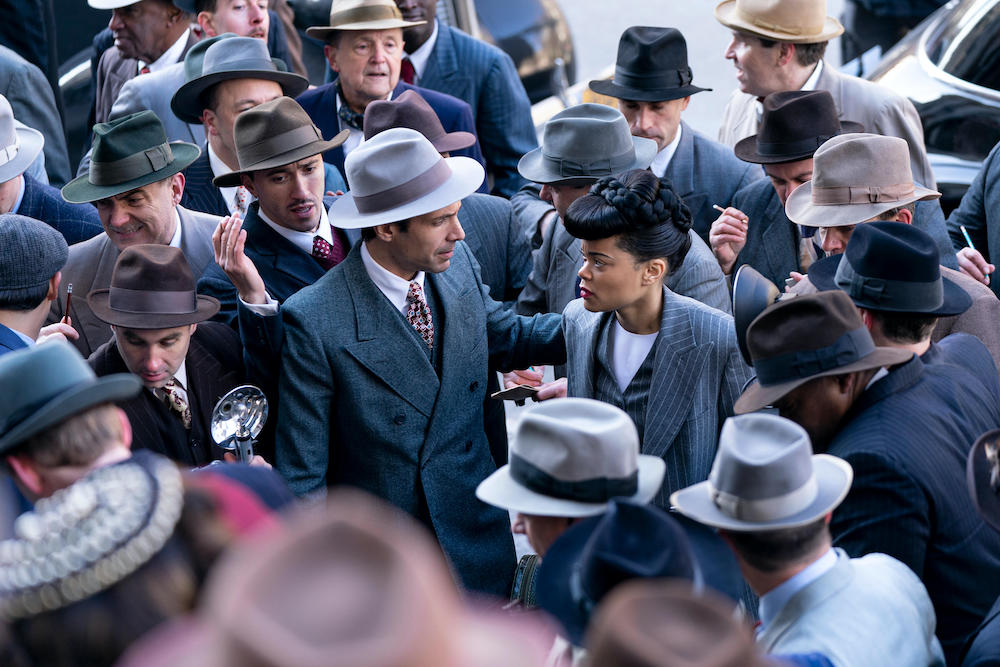
GLITTER: How much did you know about this story of Billie Holiday and “Strange Fruit” before taking on the role?
GARRETT: I was so unaware. I did a film that was dealing with the Beat Generation and the ’40s and ’50s about ten years ago. I religiously listened to Billie Holiday for all the drives throughout the states, up to Frisco, all the moments in the trailer, and on set. I listened to her so much, but there was so much I was unaware of. I wasn’t even aware of her struggles as an addict, and I most definitely wasn’t aware of the malicious opposition that the government imposed upon her for being so and for singing “Strange Fruit.” I was also unaware of the message behind “Strange Fruit,” the impact that it had as a Civil Rights Movement song, that it was a song where the lyrics were anti-lynching and the acts thereof. That’s why it’s such a wonderful thing, about not only what the script was, but what this film has become. It’s such an educational experience. It most definitely was for me, and I’m sure will be for anybody that watches it. My greatest hope is that it’s something that will stand the test of time, be shown in every classroom, history lesson, music lessons. Because Billy’s voice was so silenced back then and all of the restraints that were applied upon her, I think this is a way that Lee has granted her and her legacy a new voice for the new generation.
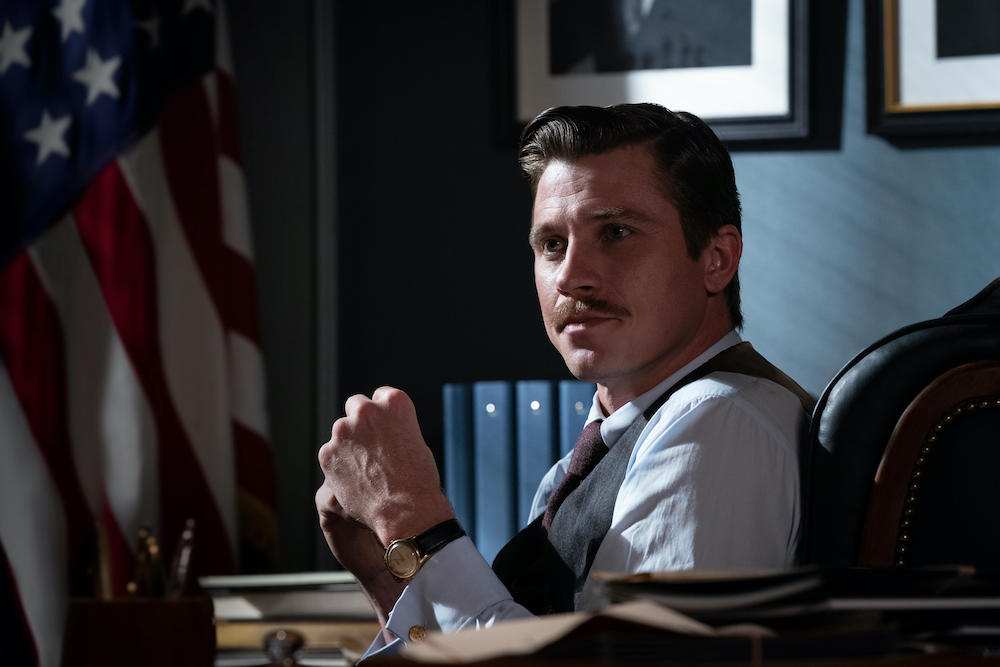
GLITTER: What initially attracted you to this script?
GARRETT: It was a role I hadn’t done before. I met with Lee before the script was finished, he handed me over a stack of material on Harry Anslinger. I was confused and curious of why he saw me to play this character. You know, when I first saw a photo of Anslinger, he kind of looked like a young Al Capone, and older pictures of him look like a Hitchcock, and he just said, “we’re going to flip a switch on this one.” That’s all you got to say to get me to be on board no matter what. Because he was basing it after Chasing the Scream, Johan Naris’ incredible book, which is not only about addiction, but really dove into, like I said, the malicious opposition of the government upon Billy. It was so in-depth, so true, and this side of Billie Holiday that so many, like myself, are unaware of. Saying I was excited to be a part of it is such an understatement. It felt like something that had to get done.
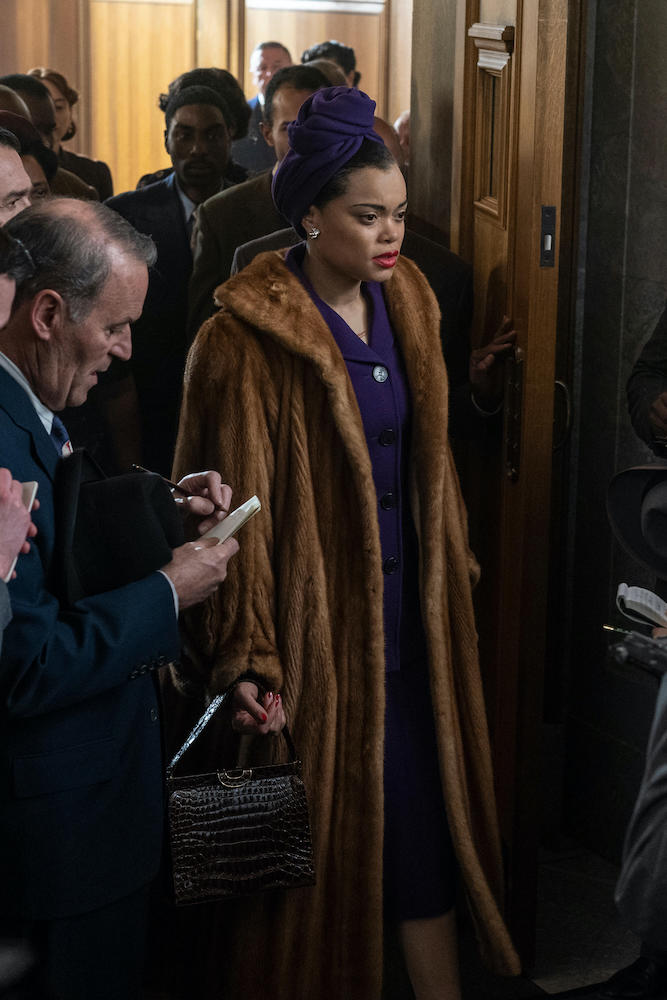
GLITTER: How did you prepare yourself for the role in the 1940 setting?
GARRETT: Well, look, I love that era more than anything. I think I romanticize specifically about the 40s more than any other time. It was a lot of looking at the history books, doing the research on Anslinger, his upbringing, where he came from, and I’d realized that he always had kind of a sinister ulterior motive to what got him to where he was in the first place. Before that, he worked on the rail yard in Philadelphia and had found some $50,000 insurance scam or something that was fraudulent, which got him promoted to director. Then he was working for the prohibition as the commissioner’s assistant. Which then the prohibition failed, so he sort of had his tail between his legs, but then he sort of married up to the niece of the United States Secretary of Treasury, and he kind of had this yearning and hungry passion to be a man of a certain form of stature. It was within this that you got to sort of see how he withheld himself, the grudges that he had, how he would formulate or reformulate his opinions of certain things, such as drugs and alcohol, according to what position he was holding. Which in a lot of the articles that I read, before he became the director of the Federal Bureau of Narcotics, he thought marijuana was was nothing harmful whatsoever, and then he interviewed the 30 doctors, 29 said it was harmless, and one said it was the devil’s drug. Then through mass media, he ran out through the press that he completely changed his views and continued to do so. This was just the beginning for him. He ended up working through Truman, Hoover, Eisenhower, and Kennedy, withholding this position.
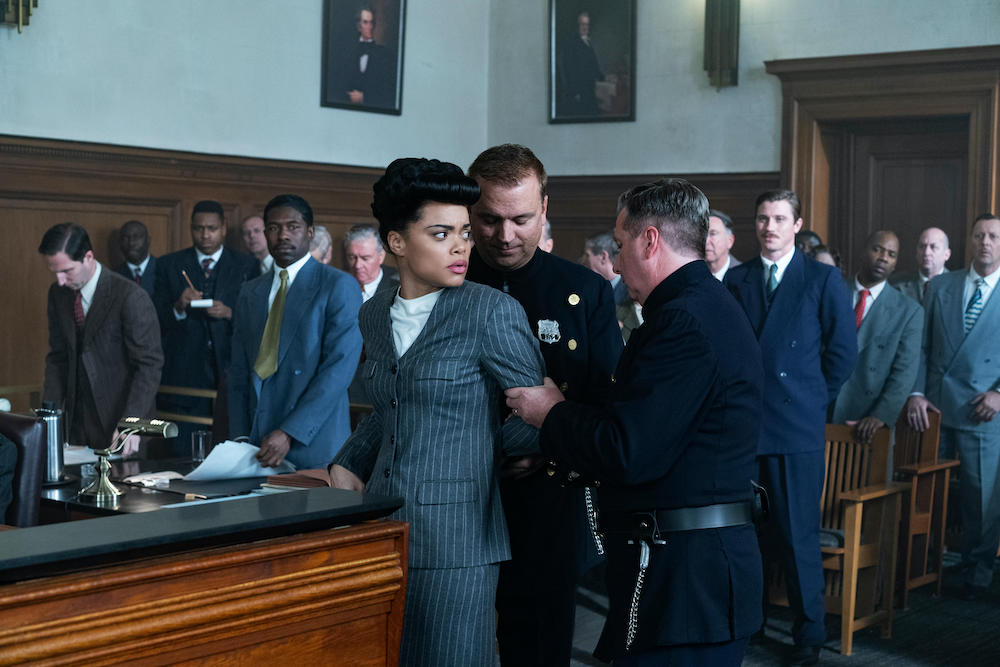
GLITTER: What were some of your favorite aspects of the film?
GARRETT: You know, for me, I’m one of those that– I always like to see the grit, the hard stuff, the dark stuff, the trials and tribulations of an artist with a voice, with a message, striving to get it out and how they deal with themselves and others or the public within their isolation. It’s a very sort of psychological kind of craving that I like to see. So a lot of the wonderful moments of Andra and how she portrayed Billie Holiday in this so wonderfully, as her moments of struggle, my heart melts for her. It’s the pain of seeing her always trying to rise up, and to overcome, and to kick the drugs, to have her voice, to sing the songs she wants to sing. Then once again, they strip her of her cabaret card. The U.S. government, which is being revealed in this, had basically put so many restraints on her that if she were to open her mouth and utter air, she would be arrested. So I’m honored. I’m excited for everybody to get to see this side of Billie. Like I said, I think it’s such a blessing that Lee came along and wanted to share this story, because for Billie’s legacy to get to have a voice is a very special thing for this generation.
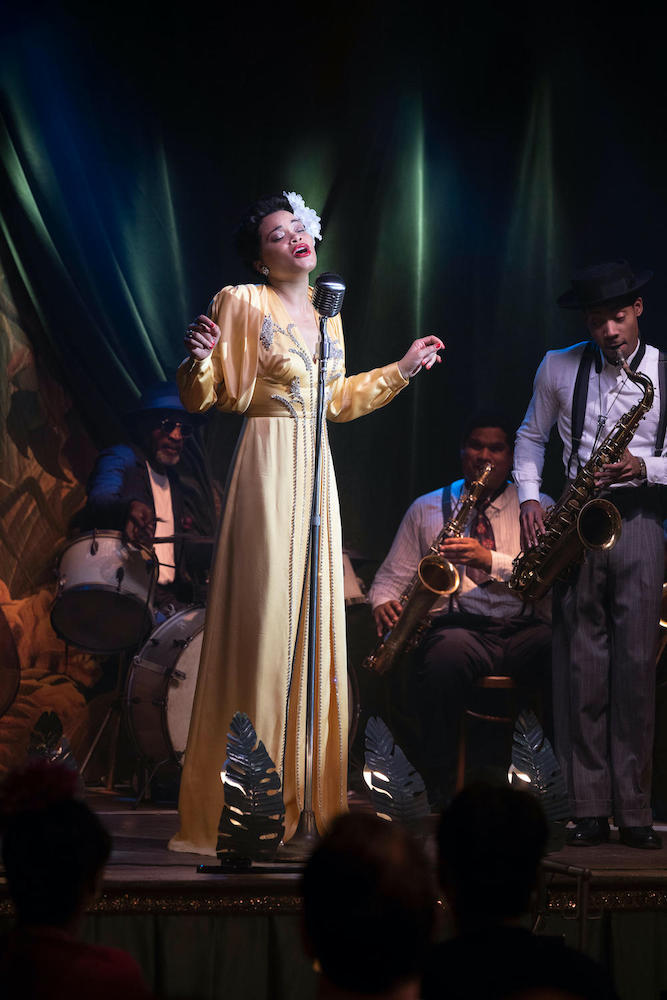
GLITTER: What did you take from the film personally and as an actor, or how did the film resonate with you after you have seen it and have seen yourself?
GARRETT: I think it’s like I said, it’s one for the history classes and the music classes around the world. That was, I think, what Lee was so eager to show, what I was honored to be a part of. Look, I’m such a jazz fan at the end of the day anyway. For times in my life, speaking of say, even in her song, “Solitude.” For me, in moments of solitude, isolation, journeys, and travels and the joys and vicissitudes kind of across the globe, I was always sitting back listening to Billie, Lester Young, Dexter Gordon, Bob, and Bud. I cherish it all. So to be playing in the jazz field, I’ll do it as many times as John Wayne was a cowboy.
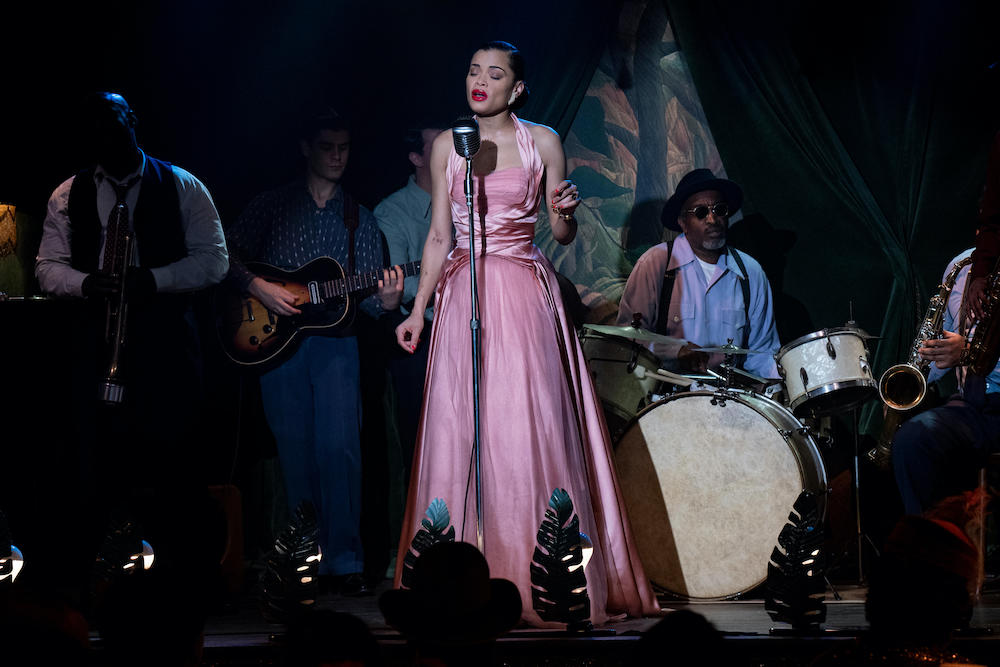
GLITTER: Can we know what’s next for you?
GARRETT: Yeah, this wonderful thing is coming up, and we’ll see. Things are trying to find a time and space on the calendar and geographically to be able to go under COVID. But for right now, I’m chatting about old Billie Holiday.
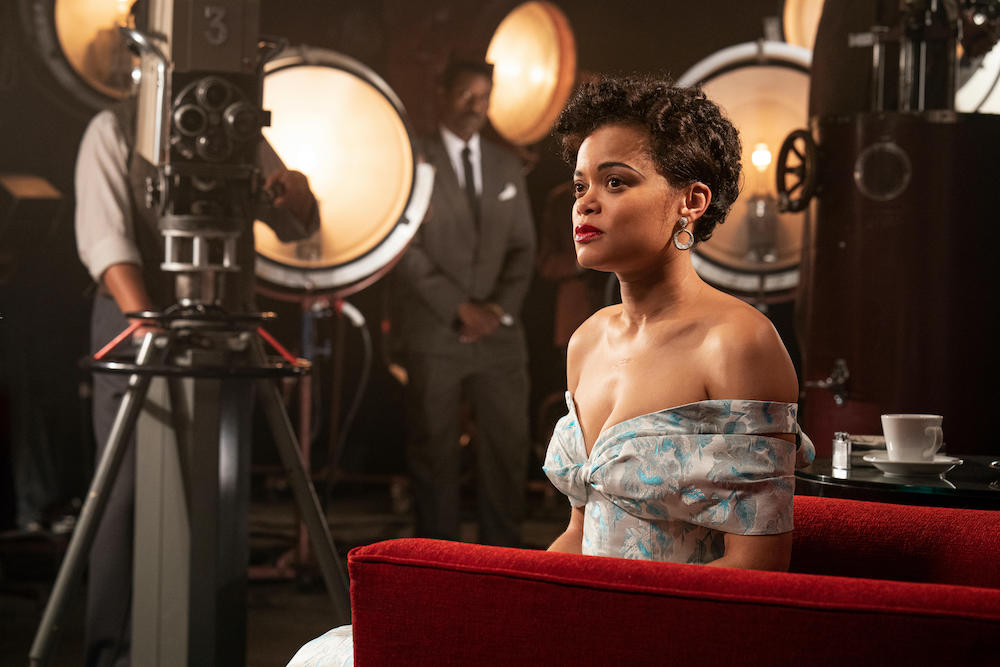
GLITTER: That’s awesome. Well, thank you so much for taking time out to speak with us. It was a pleasure.
GARRETT: Likewise.
The United States vs. Billie Holiday streams on Hulu Feb. 26.
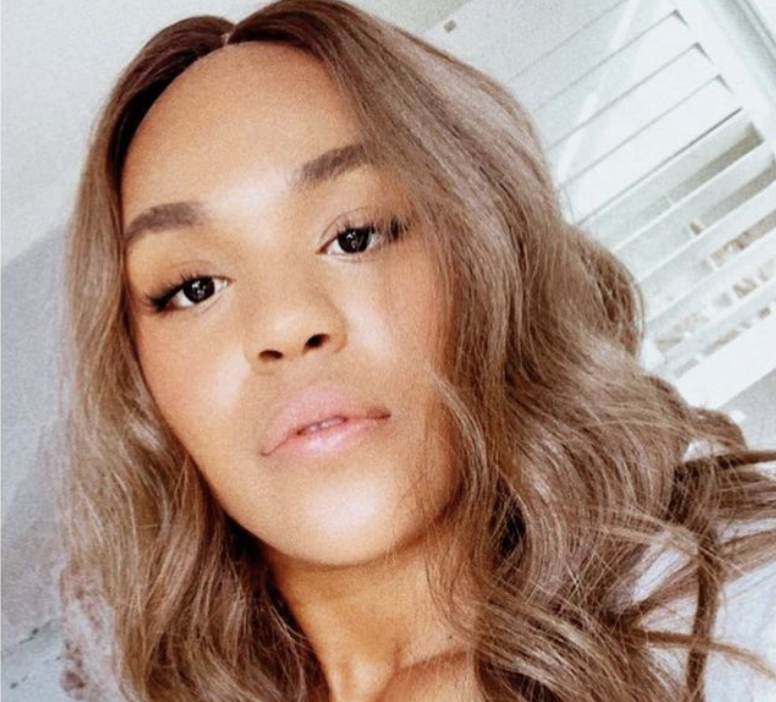
Glitter Co-Founder | Writer | Journalist | Host | Tweet me @zoefowler28




